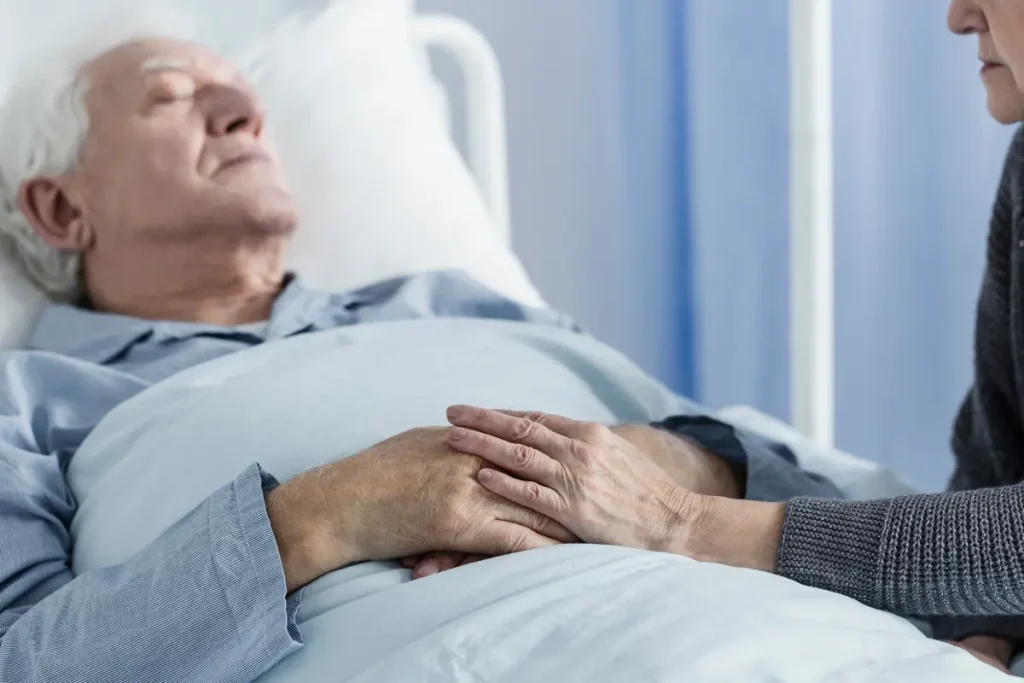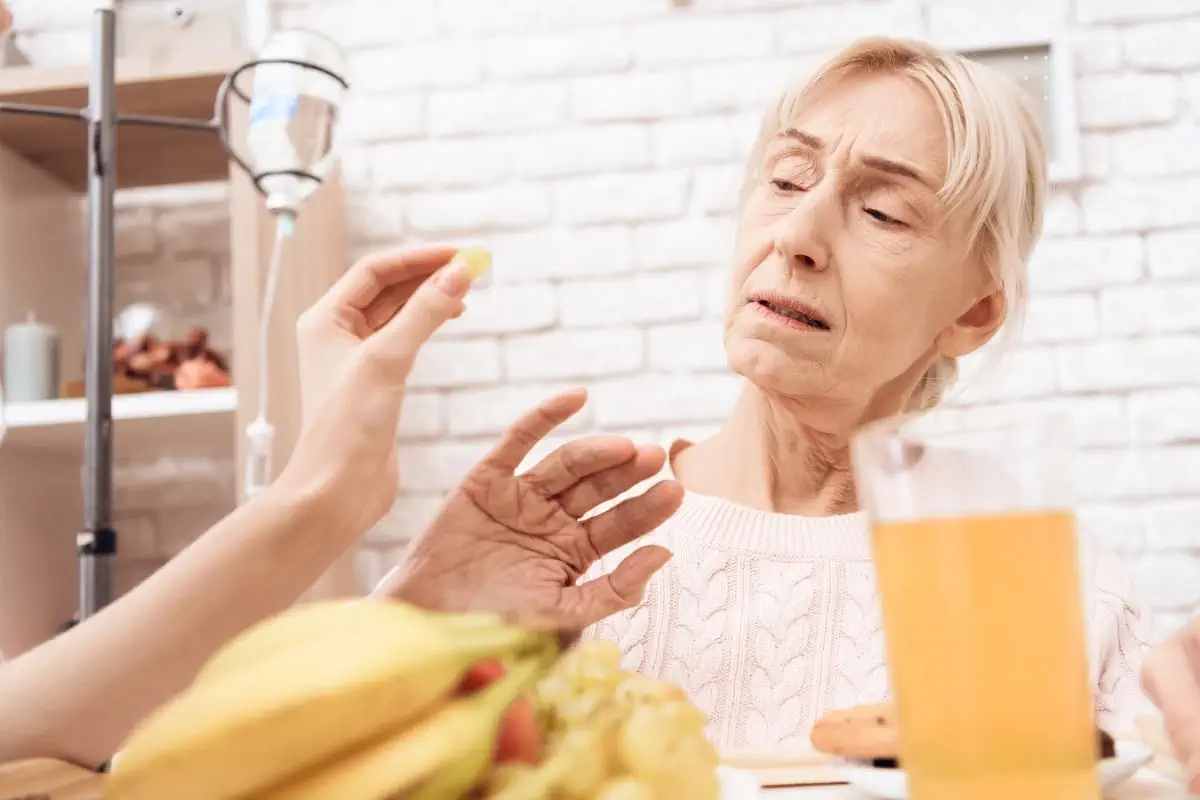
How Long Can Elderly Live Without Food and Water?
How long can elderly live without food and water? Scientists have shown that without water or vitamins, survival is only possible for a few days or at most 1 week. But if enough water and vitamins reach the body, it is possible to continue living without eating for 1 year. How long do you think elderly can survive without food and water? In theory, when all the body’s fat, protein, and carbohydrates are eventually consumed, the body runs out of energy and stops working.
The article you read in this article of the humanhealthmag website examines how seniors survive in the conditions that arise for them. Indeed, how and after how long can an old person tolerate dehydration or hunger and lack of oxygen?
How Long Can Elderly Live Without Food and Water?
Physicians believe that a person who is healthy and at a young age can refrain from consuming water for a period of 3 to 8 days and from consuming food for up to 8 weeks, provided that the deprivation of food does not coincide with the deprivation of water. But this does not apply to all people, especially the elderly, because some may live longer and some may die in less than this time depending on their physical condition and health.
When an elderly person stops eating, how long can they live? Obese people can survive only as long as they have water-soluble B vitamins in their bodies, because these vitamins are necessary for the use of fats. The longest hunger strike on record is that of Irishman Kieran Doherty, who went on hunger strike in 1981 and died after 73 days. Available data shows that people can survive more than a year without eating food by consuming water and vitamins.
How Long Can Elderly Live Without Water?
Humans can survive without food for weeks, but a thirsty person can survive for only a few days, depending on how much water is removed from the body. Without water, the volume of blood in the body decreases, followed by blood pressure. The blood becomes thicker and more viscous, and as a result, it becomes harder to circulate in the body. Therefore, the heart works more to compensate for these conditions. However, even in cool weather you will last less than a week without water.

What Are the Consequences of Anorexia in Aging?
Alarmingly, it is estimated that between 15 and 30 percent of older adults suffer from age-related anorexia; As you age, your digestive system slows down, your energy needs decrease, and your sense of smell, taste, and vision change, all of which can contribute to decreased appetite.
Appetite is closely related to health; Not eating enough leads to weight loss and malnutrition, which accelerates weakness. Hence, elderly malnutrition treatment must be taken seriously. Nutrient deficiencies undermine overall health, reduce mobility, and lower overall quality of life. Not getting enough protein can lead to loss of skin integrity and increase the risk of infection. Calcium deficiency can cause osteoporosis and increase the likelihood of bone fractures. Research has shown that age-related anorexia increases the overall risk of morbidity and mortality.
Short-term loss of appetite due to a situation such as an illness or traumatic event is normal. Loss of appetite leading to the inability to meet the needs of the elderly body is a concern. Loss of appetite becomes a serious concern when it is accompanied by weight loss, loss of energy, loss of interest in all foods, or increased frequency of illness; That’s the time to consult a Physician to prevent serious illness or learn tricks to stimulate appetite in the elderly.
What Happens to Senior Body if They don’t Eat Food or Drink Water?
How long can elderly live without food and water? This depends on several factors, perhaps the most important one is the psychological factor that appears in the human will.
The amount of fat in the body is another determining factor; The greater the amount of fat in the body, the greater the ability to survive, because the human body stores sugars, fats and proteins to help it survive in dangerous situations. In the state of starvation, the body first consumes sugars, then fats and finally proteins. The body consumes glucose during the first eight hours of abstaining from food, and almost no changes are observed in the functioning of the body’s cells. Then, up to 4 hours later, the body starts to break down the stored glucose in the form of glycogen in the liver and muscles. After that, symptoms of glucose deficiency appear.

With the depletion of glycogen, the body has no other way than to obtain glucose from amino acids. Because the cells begin to break down the fat reserves under the skin to obtain fatty acids and use them as direct fuel, thus obtaining glycerin or glycerol, which can be converted into glucose. This process occurs in the first three days and causes body weakness.
What happens when an elderly doesn’t eat? Abstaining from food for several days causes weakness, dizziness, chronic diarrhea, discomfort, inability to make decisions, decreased sexual desire, and weakness in the immune system. If it continues, various body systems will gradually fail and more severe complications such as hallucinations, muscle spasms and irregular heartbeat will appear.
Factors that Determine How Long Can Elderly Live Without Food and Water?
Among the factors that affect the body’s ability to tolerate food abstinence is the metabolism process. Metabolism is the process through which food is converted into energy, and by reducing its average, the conversion of stored food into energy is reduced. Therefore, the body retains these nutrients for a longer period of time, which means it can survive longer without food.
Weather is also another influencing factor on a person’s ability to survive without food. High heat means faster dehydration of the body and cold means a higher metabolism rate to maintain the body temperature at a normal point.
Concluding Remarks
In this article, we talked about how long can elderly live without food and water? Man can climb the highest mountains in the world and live in the driest and cruelest deserts in the world! But life is very unstable, it is enough to lose access to simple needs such as water or food, and even sleep, so that a person simply dies.
Oxygen, water, food and sleep are the basic and primary needs for human survival. How long can a human survive without meeting these needs? The answer to this question is different for each person and the situation in which they are located. Although the law of three governs the nature of the basic needs of the human body: three minutes without oxygen, three days without water and three weeks without food.

FAQs
At What Age Do You Start Eating Less?
As we get older, we generally become less active. On average, people over the age of 60, and certainly over the age of 70, need less energy than when they were young, because they consume less energy. In general, their caloric needs are lower because they do less work.
How Long Can an Elderly Live with Minimal Water and Food?
According to one study, you cannot survive more than 8 to 21 days without food and water. People who are dying and therefore using little energy may survive only a few days or weeks without food or water.
